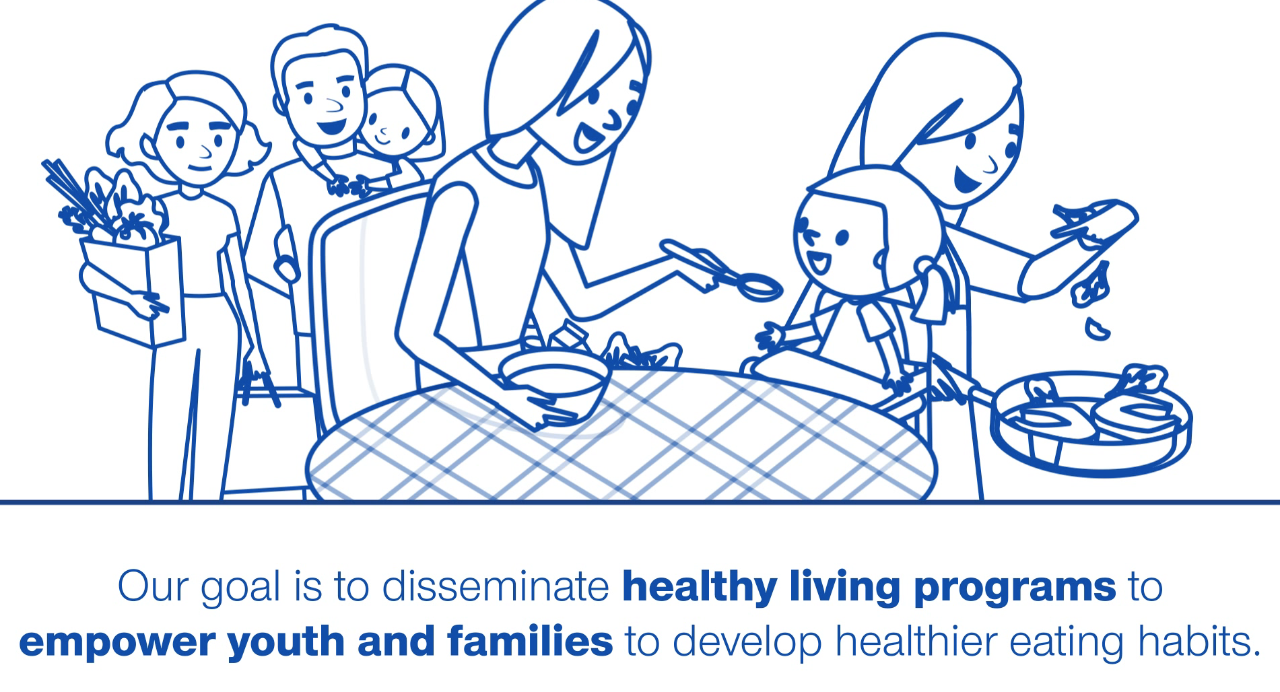![]() The opportunity
The opportunity
Today’s youth face complex healthy living challenges and environmental pressures that are impacting their ability to succeed. From proper nutrition and cyber bullying to physical activity and academic pressure, young people are faced with health challenges that require resilience and good health to thrive.
Food insecurity and obesity
An estimated 11.8 percent of American households were food insecure at least some time during the year in 2017, meaning they lacked access to enough food for an active, healthy life for all household members.1 And six percent of the population lives in what the U.S. Department of Agriculture considers to be ‘food deserts,’2 or low-income areas where at least one third of residents do not have access to fresh, healthy food. Researchers note an association between food insecurity and medical conditions such as obesity, type 2 diabetes, and heart disease in both children and adults.
Healthcare workforce shortage
The U.S. is also facing an impending shortage of public health workers due in part to an aging population and increases in chronic diseases. According to the Bureau of Labor Statistics (BLS)3 health care jobs will be among the fastest growing in the U.S. through 2026, accounting for about 2.3 million new jobs. However, in many states, the projected supply of health care workers will be unable to fill demand. Since 2011, UnitedHealthcare Community & State has partnered with National 4-H Council to disseminate 4-H Healthy Living Programs to empower youth and their families to make healthful decisions, lead healthy lifestyles, and developed needed skills to support achieve their future education and career goals.
![]() The innovation
The innovation
As the nation’s largest youth development organization, 4-H grows confident young people who are empowered for life today and prepared for careers tomorrow. 4-H programs empower nearly six million young people across the U.S. through experiences that develop critical life skills. In the U.S., 4-H serves every county and parish through a network of 110 universities and more than 3,000 local offices.
Using 4-H’s research-backed programming, UnitedHealthcare Community & State partners with 4-H to help youth learn about living a healthy lifestyle and puts them in the drivers seat to make healthy, affordable food choices and prepare for their future careers through fun, hands-on activities and projects.
The 4-H Healthy Futures program integrates workforce preparation programming with nutrition, mental wellness and physical activity education that is essential to fostering upward mobility in communities. The holistic approach of the program ensures that participants are equipped with the knowledge and skills to make healthy decisions and empower children and teens towards healthier, successful futures. UnitedHealthcare Community & State supports the inaugural year of the 4-H Healthy Futures program across five states (AZ, LA, MS, NE and TN).
![]() The outcomes
The outcomes
Since 2011, UnitedHealthcare Community & State has invested more than 6 million dollars in support of 4-H Healthy Living Programs. Through this partnership, more than 415,000 youth and families have been educated on topics such as nutrition and food budgeting that provide youth with the confidence and skills to lead healthy lifestyles. Not only does this improve overall well-being, it enables youth to tackle life’s challenges and become leaders in their lives, careers, and communities as they grow into responsible adults.
Preliminary outcomes from the 4-H Healthy Futures program show that nearly 95 percent of 4-H Teen Ambassadors believe that 4-H has helped them explore future career options in health care and other employment sectors and all report that 4-H is a place they are encouraged to plan for their future. More than 70 percent of youth who are participating in the Healthy Futures program noted they plan to eat the recommended amount of fruits and vegetables while more than 80 percent plan to drink the recommended amount of water and stay physically active.

Work in the community
Teen Healthy Living Ambassadors in Arizona recently learned about careers through a panel with professionals from diverse industries. Each described their experiences toward their career path, what they liked and disliked about their job, and the requirements necessary to be in their jobs. The teens have also participated in trainings focused on product development, health care skills, and leadership.

Sources
- https://www.ers.usda.gov/publications/pub-details/?pubid=90022 Opens in a new window
- https://www.ers.usda.gov/data-products/food-access-research-atlas/documentation/ Opens in a new window
- Bureau of Labor Statistics. Employment Projections and Occupational Outlook Handbook, October 2017
